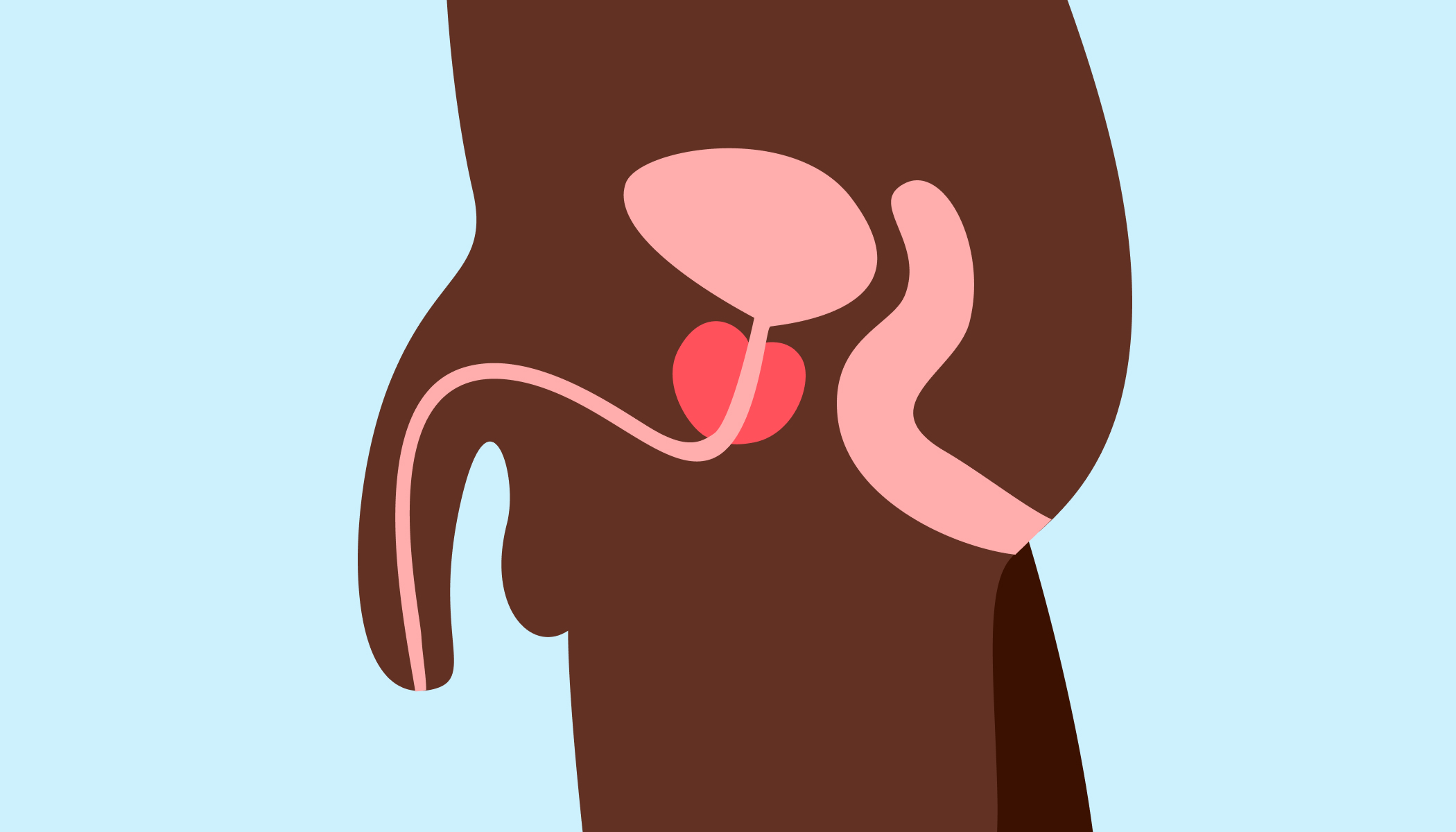The prostate is a small gland, about two inches inside the bottom in men. It helps make semen by producing the fluid that sperm cells are mixed with.
As you age, your prostate changes. It grows in size and can sometimes develop cancer. Around 22% of all newly diagnosed cancers in Europe are prostate cancer. This type of cancer only usually develops after the age of 50. But the good news is that the survival rate is very high.
A prostate exam looks for physical abnormalities. If a healthcare professional has recommended you have one, then it’s worth getting your prostate checked out.
What happens during a prostate exam?
The idea of having your prostate examined might be daunting, but the check is carried out by a medical professional who’s likely done it many times before. Here are the key steps of a prostate exam:
1. Your doctor lets you know what to expect
Before getting started, the doctor or nurse will discuss things with you and give you the chance to ask any questions.
You can ask to have someone else in the room during the prostate exam, like a friend, family member or another medical professional.
2. You get undressed from the waist down
To make the exam easier, you need to fully remove your clothes from the waist down, including your underwear.
You’ll be given privacy while you get undressed and you can let the doctor know when you’re ready.
3. Your doctor tells you what position to get into
You can have the prostate exam standing up or lying down, depending on the examination room and your physical capabilities.
In the upright position, you stand with your legs apart and rest your arms on a surface so that you’re bent over. If you have the exam lying down, you’ll be on a medical examination table. You lie on one side and hug your knees up to your chest.
In either case, the doctor or nurse approaches you from behind, and you can ask them to explain each step as they go.
4. The doctor inserts a lubricated, gloved finger into your bottom
Once you’re ready, the doctor or nurse will carefully insert one finger into your bottom. The lubrication means it will go in easily, and they don’t need to go very deep because the prostate is quite close to the entrance.
It might feel unusual at first, but take a deep breath and try not to tense up or clench. After a couple of seconds, your anal sphincter (the muscle that controls your anus) should relax.
5. They check your prostate for any abnormalities
This part is a little bit uncomfortable but only takes 3-20 seconds. The doctor or nurse lightly presses on your prostate with their finger to check for any abnormalities, such as:
- Lumps
- Swelling
- Tenderness
- Size
It shouldn’t hurt, so be sure to let the doctor know if you’re in any pain.
6. You can get dressed again
The whole process only takes a couple of minutes. You’ll be given some tissue to wipe up any excess lubrication and privacy to get dressed.
Should I prepare for a prostate exam?
You don’t need to do anything special before getting your prostate examined. You will be examined by a medical professional and they’ll be wearing gloves.
If you’re worried, then it can help to pee and poo before your appointment, but don’t force it. Some people feel more comfortable if they’re clean before their exam but you don’t need to douche – you can just clean the area gently in the shower as usual.
How does a prostate exam feel?
A prostate exam can cause some discomfort but it will be over before you know it. It feels like a slight pressure in your bottom and sometimes like you need to pee.
Some people worry about having an accident or becoming aroused, but the exam is over so quickly that there’s not much time for anything like this to happen. If you feel nervous, let your doctor know and they can talk to you about your concerns.
What happens after a prostate exam?
After the exam, the doctor can tell you straight away whether everything felt normal with your prostate. However, sometimes the prostate can feel fine even though there might be a problem. It can also have abnormalities caused by something other than cancer, such as inflammation (prostatitis) or benign prostate enlargement.
This is why your prostate exam is often combined with a blood test called a PSA test. It looks for levels of a certain enzyme, which, if higher than normal, can be a sign of cancer.
It usually takes between 1-2 weeks to get the results back. Your prostate exam and PSA will determine whether any further tests are needed and help the doctor decide how regularly you need to be checked in the future.
How does a doctor diagnose prostate cancer?
If your prostate shows any signs of abnormality, you may be referred for more tests, such as an MRI or a biopsy, to see whether you have prostate cancer or if something else is causing the issue.
Who should be screened for prostate cancer?
Prostate screening is when you get your prostate or PSA levels checked even though you don’t have any symptoms.
Most countries don’t offer routine screening because studies suggest that it doesn’t help reduce the number of deaths from prostate cancer. This may be because prostate cancer is often slow growing, may not need treatment and is usually unlikely to be fatal. There is also the possibility of a false positive result, which may lead to unnecessary investigations.
In the UK, anyone over the age of 50 can get their prostate checked. Your doctor should discuss the pros and cons of prostate tests with you to decide how to move forward.
If you’re at higher risk, such as being symptomatic, of black ethnic origin, or have a family history of prostate cancer, then a doctor may recommend getting a prostate check up earlier or more regularly.
When should I speak to a doctor?
Although the following symptoms don’t necessarily mean you have cancer, it’s a good idea to talk to a doctor if you have any of these:
- Changes in your peeing habits
- Blood in your urine or semen
- Pain in the lower back, pelvis, or genitals
This article has been medically reviewed by Livi GP Dr Roshaan Salojee


